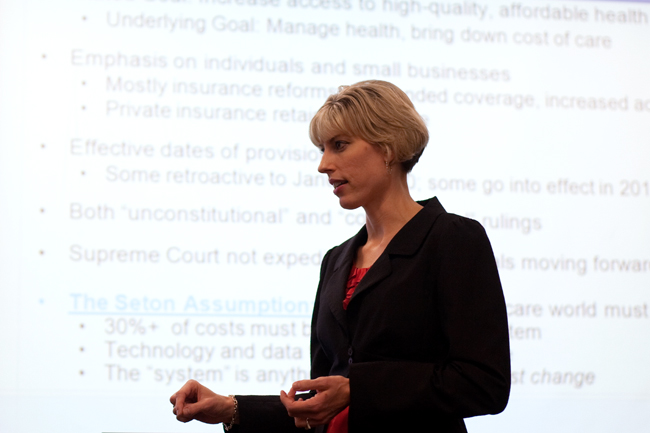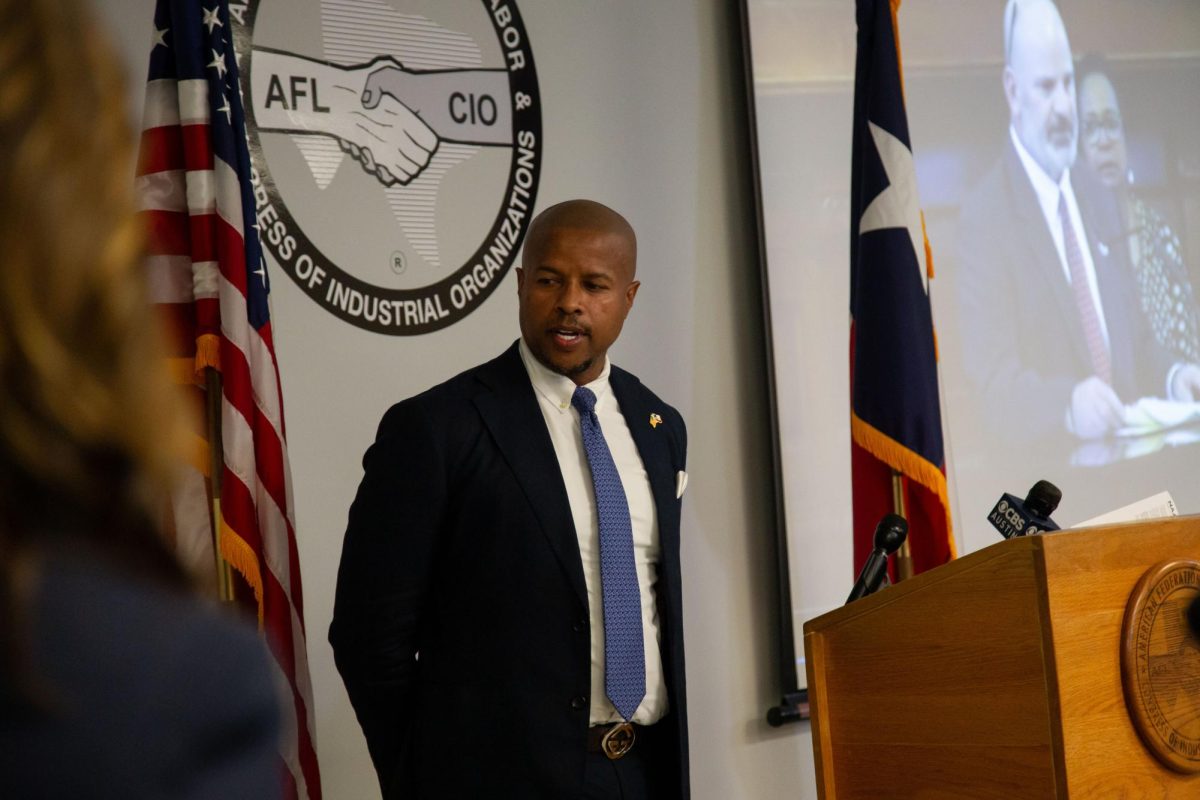Because 75 percent of health care personnel continue to work at the facilities where they are trained, a UT medical school in Austin would help the area gain more health physicians — something Central Texas is currently short on.
A lecture hosted by UT’s Business Healthcare Association on Tuesday night covered the work that Seton Healthcare Family, a health care network which serves Central Texas, has been doing in the medical field and what the future of medicine looks like. Kate Henderson, vice president and chief operating officer of University Medical Center at Brackenridge, spoke at the lecture and said the future of health care is in new innovative technologies, teamwork between different medical professions and wider access to high quality and affordable health care.
“Central Texas is actually underserved,” Henderson said. “We don’t have enough specialists today to provide the health care this current community needs. In general, we don’t have enough to sustain the growing needs of this population.”
Henderson also spoke about what a UT medical school in Austin would mean for the area. She said Austin, currently the largest city in the United States to not have a medical school, would see benefits in their economy.
“When you have a medical school in a city, it gives the city a kind of prominence,” Henderson said.
Senator Kirk Watson, D-Austin, has been pushing for a medical school in Austin since last fall, when he outlined a plan for the proposal. Henderson said having a medical school in Austin is important to building an academic medical center in Austin.
“I think we’ve been very luck to be able to attract some of the researchers and clinicians we already have because of the graduate medical education and the residency education,” Henderson said. “Having the medical school is the last piece to that program.”
Talia Rabushka, secretary of the Business Healthcare Association organization, attended the lecture and said it made her excited to go into health care, where she hopes to be a health care administrator.
“The future of health care, learning about the different aspects and where we can grow, what emerging in the field is all interesting to me,” said Rabushka, a finance and public health sophomore.
Business Healthcare Association president Anand Tamirisa said a medical school in Austin would change everything.
“You are going to have really well known people from all over the country and professors from really top-known medical schools,” said Tamirisa, a finance senior. “It’s really cool.”
Printed on February 29, 2012 as: Talk focuses on future of Austin health care




















